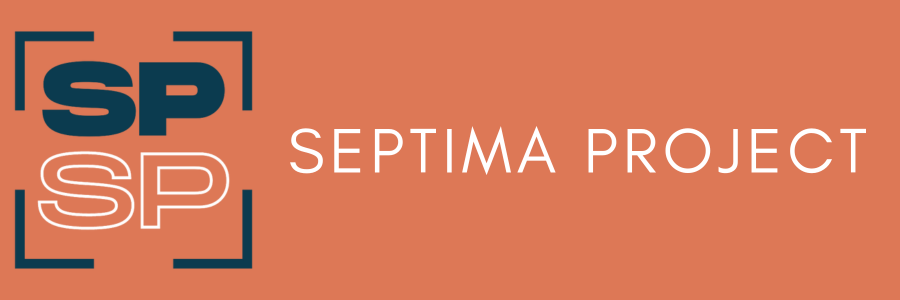How It Started…How It’s Going Pt. 2
Jun 2023
Photos of Septima Project co-founder Kristina Gray-Akpa’s maternal family
In our last blog post, we shared Elizabeth’s path to racial equity work. Up next is Kristina’s story about what shaped, informed, and guided her journey to Septima Project.
I come from a long line of activists, agitators, and rabble-rousers. Folks who spoke out against injustice and made a way when there was no way. They were educators, organizers, and civic leaders who taught me the importance of service, community, and fighting for equality.
They are the unsung everyday black folks who came from humble beginnings and powered social justice movements; worked on the ground in their neighborhoods, churches, and schools advocating for change; and quietly disrupted and challenged racism without much fanfare.
Folks like my grandmother who helped fight segregation in local schools and advocated for voting rights in DC. My great-aunt who was one of the first black principals in Omaha, NE. Or my great-uncle who saved his ship from an attack in Japan during WWII, but was denied any acknowledgement of his heroism for decades because he was Black. Or my grandfather who fought discrimination working on the railroad, eventually becoming the first black head steward on the Eastern Seaboard.
I’m incredibly lucky as a Black American to have access to their stories (check out the book list below that features my family!). So many of us have been cut off from our history and ancestors. The legacy I’ve inherited is not something I take lightly. I am humbled by my family’s bravery, sacrifice, resilience, and determination.
More importantly, I am inspired by their ability to forge lives of dignity, hope, and joy in the face of racism. They survived everything from witnessing a classmate being lynched to squelched job, housing, and education opportunities. They persisted and thrived and part of what they passed on to me was the willingness to keep those stories alive. To bear witness and speak truth to power.
Not surprisingly, race and racism were talked about openly in my family growing up. One of my earliest memories is attending the 25th anniversary of the March on Washington with my family, trailed by a local news crew documenting three generations of our family honoring the historic event. My parents knew we had to talk about race so I could learn how to survive and navigate a world that might see me as a threat to be feared or an other to be dismissed.
Like Elizabeth, I was born in DC and was raised right outside the city in MD, crisscrossing the physical and cultural boundaries between both communities. I was in some spaces that were all-black (church, dance class, camp, family), a few that were all-white (violin lessons), and a lot that fell somewhere in the middle with tons of cultural, ethnic, and socio-economic diversity.
But it’s more than just proximity to diversity that led me racial equity work. It’s all the times I felt excluded or like I didn’t belong. It’s the “good liberal” white allies who would sling microaggressions my way—at work, school, in the classroom. It’s the way the air in the room shifted at work when I walked in or had something to say that was perceived as challenging. It was the pressure to feel like I had to constantly explain and educate.
It’s my big mouth that always has something to say about injustice. It’s the feeling of connecting with someone—really connecting—and seeing the light go off when they begin to question everything they’ve been taught about race. I saw that in my twenties being involved in all sorts of grassroots social justice work and cultural organizing. I saw that early in my career leading anti-oppression workshops in high schools. I experienced it in my later work fostering dialogue about antiracism and designing diversity, equity, and inclusion training with everyone from public health officials to foundation presidents.
This work has always been about bringing people together and finding a way toward justice. It’s rooted in a deep sense of fairness and compassion. It’s also guided by a dedication to taking up my family’s mantle to continue the struggle for racial equity and liberation. This is what led me to this work. This is what inspires me to keep going.
What’s your north star? What’s your path to antiracism?
Kristina’s Family History Resource List:
Lynching and Forgiveness PBS Video
Rising from the Rails: Pullman Porters and the Making of the Black Middle Class



